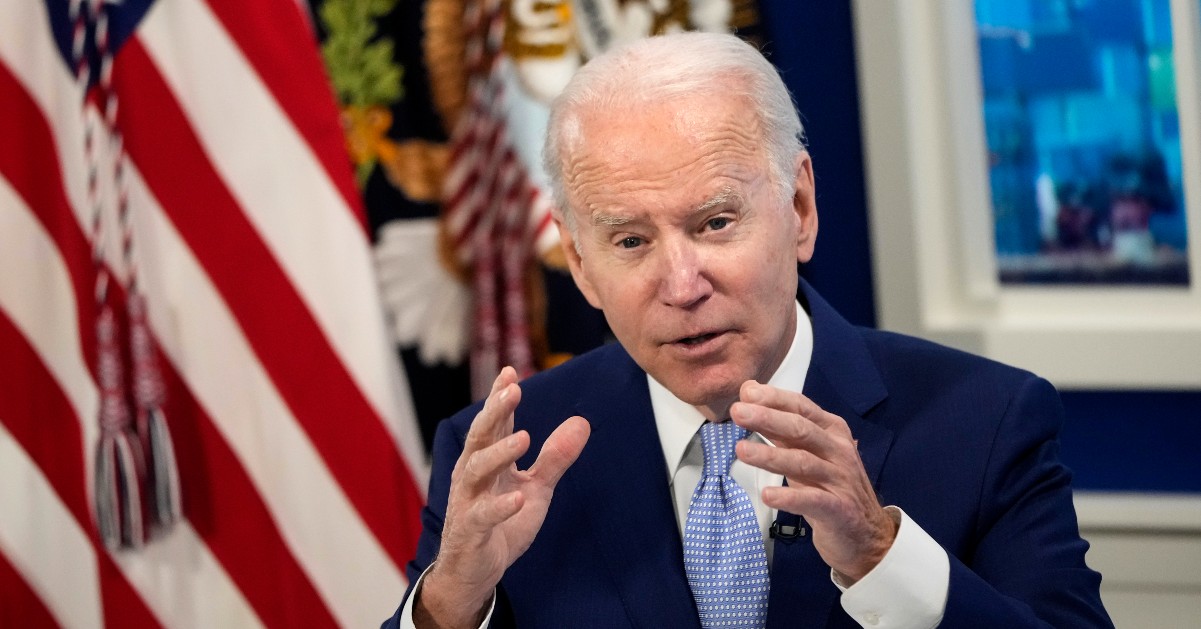OPINION: This article may contain commentary which reflects the author's opinion.
The U.S. Supreme Court announced late on Wednesday night that it will hear oral arguments on January 7, 2022, in two separate challenges to Joe Biden’s coronavirus vaccine mandates.
The nation’s highest court will hear oral arguments challenging both Biden’s vaccine mandate for businesses with over 100 employees and for healthcare workers at facilities receiving Medicaid and Medicare funding.
“Several Republican-led states, businesses, and other opponents have put Biden’s mandates in legal limbo for weeks, with federal courts having halted their enforcement pending the outcome of the legal challenges. While courts have generally upheld the rights of private businesses and schools to implement their own vaccine mandates, the lawsuits over Biden’s rules challenge whether the federal government has the authority to force employers and other entities to require vaccinations,” Fox News reported.
“Arguments over the mandate for healthcare workers at facilities receiving Medicaid and Medicare funding remains murkier, with a federal appeals court lifting the ban on that mandate last week. The ruling created an avenue for enforcement of the mandate across the country, though it remains to be seen how the Supreme Court will ultimately rule,” the Fox report added.
“Biden’s employer mandate was dealt its largest blow by U.S. District Court for the Western District of Louisiana Judge Terry Doughty, who ruled the administration does not have the authority to bypass Congress on the issue and halted enforcement nationwide,” the report continued.
“The reasoning across the cases is basically the same, which is that these statutes don’t give the president or the agency in question the authority to issue the mandates,” said Gregory Magarian, a constitutional law professor at Washington University in St. Louis.
“If the executive branch is allowed to usurp the power of the legislative branch to make laws, two of the three powers conferred by our Constitution would be in the same hands,” he wrote. “If human nature and history teach anything, it is that civil liberties face grave risks when governments proclaim indefinite states of emergency.”
Earlier this week, several Republican lawmakers filed a “friend of the court” brief in support of a group of U.S. Navy SEALs who have filed a lawsuit against the Biden administration over its COVID-19 vaccine mandate for the service branch and the military in general.
“My colleagues and I filed an amicus brief in U.S. Navy Seals v. Biden in support of 26 service members with religious objections to Biden’s vaccine mandate. Religious freedom is fundamental to every American’s liberty,” Sen. Ted Cruz, R-Texas, noted on Twitter, with a link to a statement posted to his Senate website.
My colleagues and I filed an amicus brief in U.S. Navy Seals v. Biden in support of 26 service members with religious objections to Biden’s vaccine mandate.
Religious freedom is fundamental to every American’s liberty.https://t.co/wlcpHoVLW9
— Senator Ted Cruz (@SenTedCruz) December 20, 2021
In addition to Cruz, Sens. Rick Scott (R-Fla.), Mike Lee (R-Utah), Jim Inhofe (R-Okla.), James Lankford (R-Okla.), Steve Daines (R-Mont.), Roger Wicker (R-Miss.), Mike Braun (R-Ind.), and Roger Marshall (R-Kan.), along with 38 members of the House of Representatives led by Rep. Mike Johnson (R-La.), signed the amicus brief.
In the brief, the members wrote:
“Plaintiffs’ religious liberty and the government’s asserted interest in protecting our service members from COVID-19 need not be in conflict, especially where, as here, the individuals seeking an exemption are willing to adopt non-vaccination measures to protect themselves and others from the spread of COVID-19. They are only in conflict here because Defendants refuse to accommodate Plaintiffs’ religious objections even as they accommodate those who will not receive the vaccine for non-religious reasons. This violates RFRA by substantially burdening Plaintiffs’ religious beliefs without a compelling reason, and violates the First Amendment’s guarantee that government not discriminate against religion.”
[…]
“Defendants’ policies mandating that Plaintiffs be vaccinated in violation of their sincerely held religious beliefs does not come close to satisfying the strictest scrutiny Congress demands in RFRA. Defendants’ vaccine mandate forces Plaintiffs—individuals who have devoted their lives to the protection of the country—to choose between following their sincerely held religious convictions and effectively being discharged, losing their calling, and destroying their financial well-being.”
[…]
“Religious freedom is fundamental to every American’s liberty, but we have seen in recent years increasing hostility among elected and appointed government officials towards those who seek to exercise that freedom. . . . That same hostility to religion is on display with Defendants’ mandate. Defendants could easily accommodate Plaintiffs and similarly situated religious individuals given that Defendants are already accommodating individuals with medical issues or who received placebos in clinical trials. They have simply chosen not to do so.”
[…]
“[T]he impact on the military and our national security strongly counsels in favor of granting a preliminary injunction. The mandate is sidelining the deployment of soldiers on whose service our country relies. If this mandate (as currently being applied or threatened) is not enjoined, these Plaintiffs cannot fulfill their pledge to serve and defend our country, even though, based upon their training and experience, these Plaintiffs, as well as others similarly situated, are some of our most qualified, equipped, and fearless soldiers. Our men and women in uniform have fought to protect the freedoms that every American, regardless of belief, enjoys. Now they ask this Court to protect their religious freedom from encroachment by the very government they have sworn to protect with their lives.”
